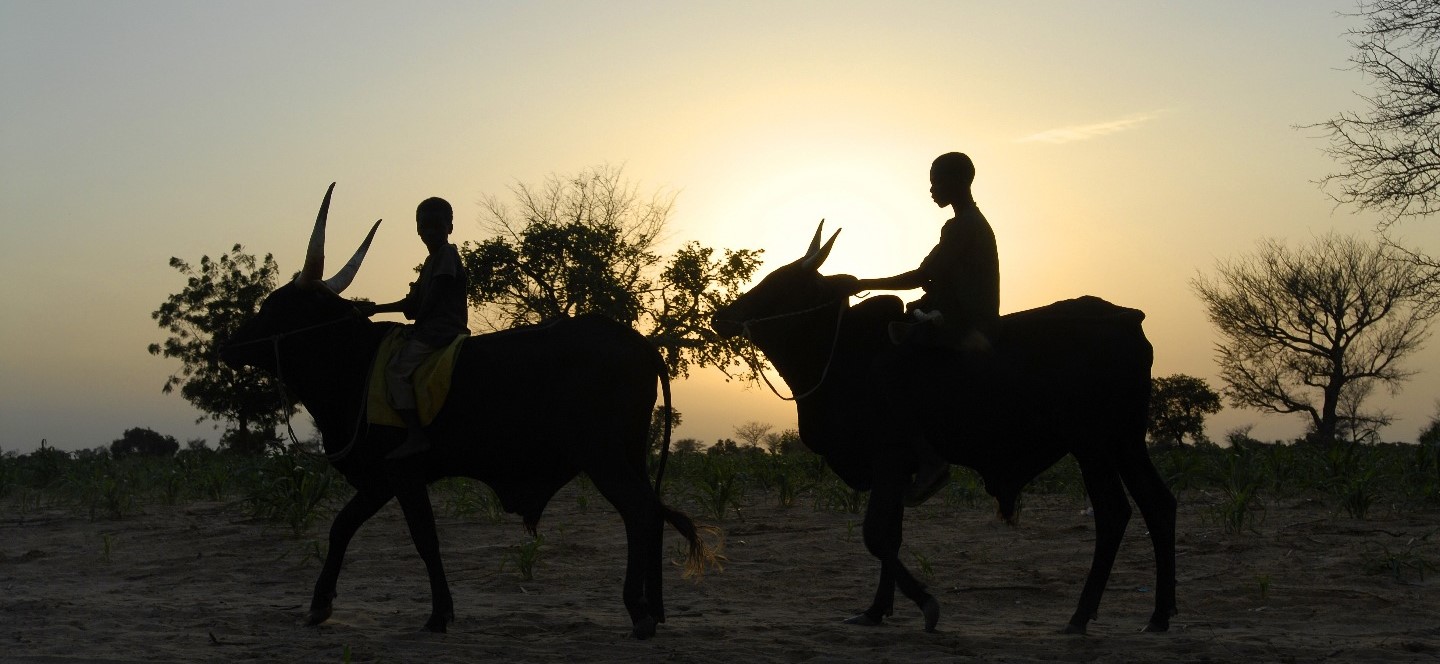How small-scale producers can leverage the growing livestock market
IFAD Asset Request Portlet
Asset Publisher
How small-scale producers can leverage the growing livestock market
Estimated reading time: 4 minutes
Livestock rearing plays an important role in rural development, especially in developing countries. For more than two thirds of the world’s rural poor, it represents an important pathway to improved livelihoods and increased incomes.
In the coming decades, both the global production of meat, as well as meat consumption in developing countries, are projected to increase significantly. This translates into a crucial opportunity for these countries’ small-scale livestock producers, many of whom are family farmers raising small livestock such as poultry, goats, pigs and sheep.
Additionally, the livestock sub-sector plays a key role in the achievement of the Sustainable Development Goals. It is a reliable source of protein and other nutrients; it creates employment all along the value chain, especially for women and youth; and it enhances soil fertility through the use of manure. The animals themselves can also help strengthen the resilience of rural households by acting as a safety net during times of external shocks.
Despite these opportunities, significant entry barriers to this sector still remain. Many small-scale farmers struggle to meet high production costs and comply with stringent food safety and quality standards. Meanwhile, access to knowledge and markets remains limited, and some contexts have few options for value addition. Youth participation also remains low across the sector’s different value chains.
IFAD has a growing portfolio of small-livestock projects spread across the world. These projects encourage collaboration and learning so that farmers can adopt innovations that are known to work and are scalable in a way that promises to improve investments throughout the sub-sector.
Recently, IFAD’s Eswatini country programme held a learning workshop to promote South-South and triangular cooperation, a framework through which countries in the global South can collaborate on shared challenges and learn from each other. A number of innovations and best practices were identified. Ultimately, five IFAD-supported projects – two from Eswatini and one each from Brazil, Cambodia and China – were noted for their scalability and their potential to increase productivity, efficiency and incomes for small-scale producers in certain value chains.
A digital tracking system makes food quality standards attainable
These days, many consumers want to know where their food comes from and how it is produced. In response to trends like these, and as a way to help family farmers meet international standards, the SPRAD project has established the Zhenba Bacon Digital Traceability System in China’s southern Shaanxi province. This initiative monitors production and management standards, hygiene measures, and immunity and disease control practices through an identification card system that tracks each pig from the farm to the supermarket shelf. So far, the project has helped over 8,000 small-scale pork producers access new markets. Next, they plan to explore higher-value export markets in Europe.
Solar-powered incubators reduce production costs
For small-scale farmers, high production costs reduce profitability and market competitiveness. Green Innovet Cam, a social development enterprise in Cambodia, is reducing the production costs of indigenous chicken farming through the use of solar-powered chick incubators. These incubators reduce chick mortality by up to 20 per cent and the amount of time spent tending the chicks to one to two hours per day. This has increased the enterprises’ profitability and freed up the farmers’ time to engage in other household and economic activities.
Value addition increases shelf life – and incomes
A lack of options for value addition limits small-scale farmers’ access to high-value markets. In recognition of this, the Brazilian Agricultural Research Corporation (EMBRAPA) is teaching Brazilian farmers how to process goat milk through a reference farm model. Trainings are conducted through a series of tutorial videos and documentaries that demonstrate how to obtain high-quality milk from goats, how to package milk for sale, and how to process the milk into goat cheese. This approach has helped farmers access more lucrative markets and increase their incomes.
Product aggregation paves the way for market access
Many small-scale farmers face a circular problem: their individual production quantities are low, which leaves them unable to attract the kind of prices that will allow them to grow their enterprises. In situations like these, combining output can be the solution. In Eswatini, the FINCLUDE project is bringing together pig farmers under an umbrella company that helps them aggregate their produce. This approach has helped farmers reduce their production costs, increase incomes and access markets outside their immediate vicinity.
Including youth in goat and indigenous chicken value chains
Youth face many barriers to entering the livestock sector, including a lack of relevant skills and difficulty with acquiring land. In recognition of these challenges, the Smallholder Market-Led Project in Eswatini is implementing goat and indigenous chicken value chains that create opportunities for youth to flourish. This approach is demonstrating that effective, sustained youth participation in agriculture is possible.
Learn more about IFAD’s work in Brazil, Cambodia, China, and Eswatini.
Publication date: 10 August 2021